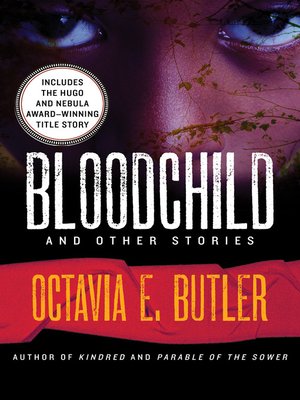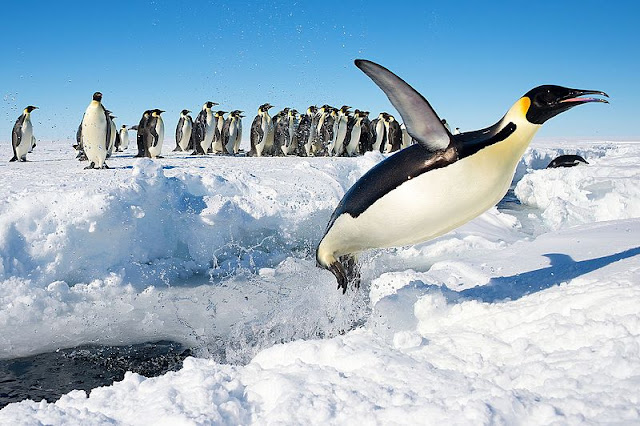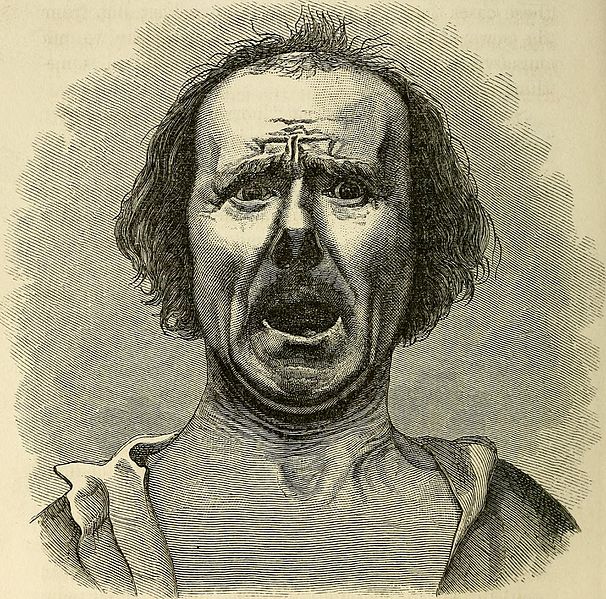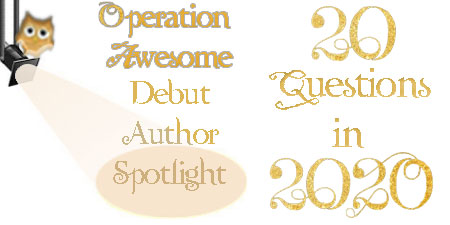
The Thing in the Woods by Matthew W. Quinn link
1- You're a regular participant in the podcast MYOPIA: DEFEND YOUR CHILDHOOD in which the movies you enjoyed as a child are put on trial to see if they hold up. What movie are you most surprised to doesn't hold up, and which are you most surprised to find does?The film Spawn was so bad that I actually apologized to my mother for having her take me to see it in middle school. Dog Soldiers, despite its well-done special effects and absolutely awesome soundtrack, was much duller than I remembered from high school and in college.
(That’s a funny story by itself—I used one scene as an example of a montage for film class and I’m pretty sure a classmate I had a crush on at the time bought the DVD afterward.)
Meanwhile, The Guyver, although it had a good concept and merited a “how I would have done it” post on the Myopia Patreon, was very poorly executed. Seriously, a Star Wars title crawl with a voice-over? And despite its reputation, The Dark Crystal is horrifically boring.
As far as movies that are still good, The Secret of the NIMH is very well-done and doesn’t scare me like it did when I was in kindergarten. I now understand that An American Tail is about the immigrant experience, particularly the Jewish one, that I didn’t get back in 1989. And although I didn’t find The Last Starfighter as exciting as I did when I was five or six years old, the concept is great and I have a much stronger appreciation for Maggie (Mary Catherine Stewart) and Centauri (Robert Preston). Especially the latter, now that I know about The Music Man. I also actually understand what’s going on in The Flight of the Navigator, which I didn’t when I first saw it in the 1980s. I can see now that Christopher Lloyd’s character in Camp Nowhere has a character arc along with that of the kids. And I understand more about the personal dynamics of Indiana Jones and the Kingdom of the Crystal Skull than I did when it first came out — Indiana’s illegitimate son Mutt Williams (who spent most of his life thinking his stepfather was his biological father) is horrified to find his mother Marion once more falling in love with the man who abandoned her when she was pregnant, to the point of throwing a skeleton at her and Indiana when they’re about to kiss.
(I liked Crystal Skull better than I liked Last Crusade. Shots fired.)
2- Would you please, in 160 characters or less, give a #WriteTip ?“One word you can cut most of your use of is ‘that.’”
I can confirm this write tip! #BeenThere #DoneThat
3- What is the best piece of writing advice you've received?Fellow Atlanta author
James R. Tuck taught me how to avoid using “said” and other speech-tags by including description of the character’s expressions, attitude, etc. and then having the dialogue. For example:
“A scowl crossed her narrow face. ‘If you hadn’t started smoking weed, this wouldn’t have happened.’”
Is stronger than:
“‘If you hadn’t started smoking weed, this wouldn’t have happened,’ she snarled.”
Which is in turn better than:
“‘If you hadn’t started smoking weed, this wouldn’t have happened,’ she said angrily.”
4- Amazon makes it look like you aren't a debut author, as if you've actually published quite a few books. So please tell us what makes The Thing in the Woods your debut novel?The Thing in the Woods is my debut novel, which was published by the Canadian small press Digital Fiction Publishing in 2017. I had some earlier work accepted, self-published, or sometimes both (Digital Fiction Publishing bought the reprint rights to several independent stories), but those were all short stories or, at most, novelettes. My first actual sale was “I am the Wendigo” to a defunct webzine called Chimaera Serials for $20 in late 2006, while my first pro rate (then $0.05/word) was the alternate history/scifi story “Coil Gun” to the anthology Digital Science Fiction 3: Pressure Suite in 2011.
5- Would you share a picture with us of your book with something that's "classic Georgia"?Here’s a picture of Thing with some local foliage from the Atlanta Beltline. Georgia is still a heavily-forested state and I draw on a lot of natural imagery when describing the environment. And I sum up a lot of the gruesomeness with the metaphor “blood in the scales of the pine trees.”
6- How difficult was it to get the rights back to The Thing in the Woods this year and release an independent second edition?Not difficult at all. Digital Fiction Publishing was looking to get out of the novel business and focus on its original core task of quality short fiction, so all I had to do was ask. I hired Apex Publications head honcho Jason Sizemore, whom I knew through James Tuck and who’d help me put out Battle, to remove DFP’s old logos and iconography from the text and reformat it more broadly for print and e-book. On his recommendation, I hired Mikio Murikami do to the same for the cover. Mr. Murikami also added “The Long War” as a series name, since the sequel The Atlanta Incursion establishes a more elaborate mythology. Thing by itself is essentially a one-shot creature feature, but TAI introduces UFO lore, MJ-12 and the Grays, and explains what the titular Thing actually was.
7- What's your Twitter handle, and do you have two or three writer friends on there to shout-out to for #WriterWednesday ?
My Twitter handle is
@MatthewWQuinn
, although I’m hoping to reduce my Twitter usage going forward. It’s a time sink and full of people fighting. As far as writers to shout out to,
@SeanCWKorsgaard,
@the_real_stien
, and
@apexjason
.
8- What’s one writing goal you hope to accomplish before you die?It’d be nice to have a film/TV adaptation, since author S.M. Stirling said books make good TV shows or miniseries and short stories make good movies. The Thing in the Woods and The Atlanta Incursion could be adapted into ten-episode TV season (like British shows, where the seasons are shorter and they’re one-and-done, with subsequent seasons being more like movie sequels), while Battle for the Wastelands is something more akin to Game of Thrones. The Wastelands prequel novella “Son of Grendel” might make a good film, since the story is pretty self-contained.
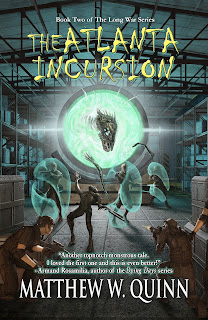
(If I had unlimited money, I would produce a GOT-style Wastelands show, with the novellas adapted as standalone films between seasons. Battle would be the first season, “SOG” would be a film released between seasons, and the unfinished sequel Serpent Sword would be the second season. I’d probably have to do more novellas that focus on people other than the main cast — shooting Battle, “SOG” and Serpent Sword back to back would probably absolutely exhaust whomever is cast as Falki Grendelsson, for example.)
9- What most motivates you to read a new book?A lot of time it’s the concept. Sterling Lanier’s novel Hiero’s Journey (and its sequel, The Unforsaken Hiero, although unfortunately he never finished the trilogy) is set 5,000 years after a nuclear war and the protagonist is a telepathic Metis (part French, part Native American) Catholic priest who rides a trained moose, is friends with a telepathic sapient bear, and fights mutants and monsters. Meanwhile, I read most of Dan Wells’ John Cleaver series because he described it on the podcast Writing Excuses as the tale of a teen sociopath who works in a funeral home fighting a demon.
10- It's our tenth anniversary! How far has your writing come in the past ten years and where do you see your writing career ten years from now?Ten years ago I had sold only one or two stories, had a massive stash of rejection letters (some from SF/F/H heavyweights like Gordon Van Gelder, John Joseph Adams, and Ellen Datlow), and had most of my success in other people’s worlds. I’d gotten the most attention from Harry Potter and Transformers fan fiction and the most money from a single licensed BattleTech short story.
Ten years from now, hopefully I’ll have completed the Wastelands series (I can finish the series with six books if I want, but the complete plan is three trilogies and a darker coda novel a la Beowulf), have many more books in the Long War, and am able to do this full-time. Per my earlier comment, a TV or film adaptation would be great to have by then.
11- What is your favorite book by someone else, what's the author's Twitter handle, and what do you love most about that book? #FridayReads book recommendation time!
I don’t really have a favorite book, but I really like Grady Hendrix’s Paperbacks from Hell, so let’s use that.
Author name: Grady Hendrix
@grady_hendrix
Title: Paperbacks from Hell
Love because: The history of horror literature from the 1970s to the 1990s is a fascinating topic in and of itself. Furthermore, the plots many of these novels have are so absolutely off-the-wall they’re hilarious. Also, I ordered the physical book in particular for the artwork and it definitely does not disappoint.
12- What emotions do you hope your book will evoke for the reader? Creeping dread. I use very ominous and gruesome figurative language, even when describe mundane things, to set the tone and inspire fear in the reader. In Thing, for example, I use deliberately creepy imagery while describing the protagonist driving to meet up with some other teens to foreshadow that Very Bad Things are about to happen.
And hopefully sympathy for the main characters. Even the villains are the heroes of their own stories and there’s a passage George RR Martin wrote that actually made me empathize with Tywin Lannister, who is objectively a monster. I’ve had some of this in my Wastelands world already—Matt Stienberg found the troubled and violent Falki sympathetic, while Western fiction blogger James Reasonor was impressed by Grendel.
13- What kind of impact do you hope your book will have?Well for starters I hope to sell a lot of copies. On a more selfness note, one of my students (I’m a high-school teacher) said reading Thing inspired him to be a writer. If I can encourage others to develop their talents, even better.
14- What is the best writing tool, program, or reference book you've ever bought?Historian Thomas G. Andrews’ Killing For Coal is a book I got when I was getting my masters at Georgia State University (2013-2015). The Wastelands series was a lot more generic steampunk at that point, but this book that made me realize the depth of the labor/class strife that was common during the “steampunk era” (roughly 1880-1918). As a result, Battle delves into those issues, even though it’s mostly set in the rural areas where this is less of a problem, and later books that take place in the big cities give these matters more attention.
15- In what ways are the main characters in your book diverse? diversebooks.org #WeNeedDiverseBooks The Thing in the Woods isn’t particular a diverse book in terms of race, sexual orientation, etc., but it does explore social class. Protagonist James Daly is from Buckhead (the richer and whiter part of Atlanta, GA) and disdains the people of small-town Edington as a rednecks. Edington itself is divided by class as well — female lead Amber Webb is a socioeconomic peer of cult patriarch Phil Davidson, who owns the local BBQ restaurant, but Phil’s minions are working-class or even poor. The second book The Atlanta Incursion introduces Javion Jackson, who is African-American. Although he’s a member of a street gang, much of his characterization is intended to subvert that particular stereotype and in some ways he’s a deliberate foil for the more privileged James. James’ friend Eli, who first appears in-person in TAI, is a patrilineal Jew — patrilineality vs. matrilineality in Judaism is something that I doubt most Gentiles know much about, but it causes controversy in the Jewish community. I also spend time developing female lead Amber Webb in the first book and especially the second, in particular some sad elements of her backstory.
Battle for the Wastelands is more diverse in those areas, since fellow Atlanta writer G. Gerome Henson asked if this was a generic fantasy world where most people are white except for some tokens and that got me thinking. From that discussion emerged the entire ethnic system of the lands between the mountains and the deserts and the seas — the flatlanders are Anglo-American Old West types, the Sejer are pan-Scandinavian, the Jiao are pan-East Asian, the Nahada are Arabic, and the Menceir are sort of like the Roma (Gypsies) or the Banjara caste of India. Falki is biracial, half Sejer and half Jiao. Some characters suffer from post-traumatic stress and survivor’s guilt (protagonist Andrew Sutter, the villain Grendel’s concubine Catalina Merrill, Falki, and to a lesser degree Grendel himself) and the character David Court would probably be diagnosed with Asperger’s Syndrome if he lived in our world.

But of all my books, the most diverse one is probably Little People, Big Guns. Most of the characters are little people (they generally prefer not to be called “midgets”), with the protagonist being a Venezuelan Catholic and the main supporting character (who takes on a larger role as the story goes on) an atheist. Another member of the little persons’ group in the town is black and rather than being poor, oppressed by bigoted police, or both, he’s a successful attorney and the group’s legal advisor. And although I’m not going to get into a lot of detail for spoiler reasons, the most developed antagonist is a woman.
16- Who is your favorite book review blogger?I don’t regularly read book-review blogs so I can’t comment definitively. However, Canadian indie author Matthew Stienberg is a reliable reviewer of my books when they come out and that’s something I appreciate. And although fellow writer Sean C.W. Korsgaard’s main focus isn’t books, he does review many of them on his own site. My first #Booktube review (for Thing) was on Books of Blood, and he’s reviewing The Atlanta Incursion next.
17- What was the deciding factor in your publication route?My main issue was who would buy the book. I submitted Battle and Thing to different agents and publishers once they were completed and revised. It took years to find a buyer for Thing and I ultimately decided to self-publish Battle after years of trying and failing. Battle made it to the second round of judging for one company before being rejected; a silver lining was that a company official was so kind as to send me all the editorial notes to help me make one last revision before I self-published it. Then-editor of Deadite Press loved the concept of Little People, Big Guns when I pitched it at the 2015 World Horror Con in Atlanta, although the press went on hiatus for some time and I got rejected by other publishers before he was able to buy it. If Deadite hadn’t bought it, that would have been another project for self-publishing. Despite being an economics teacher for my day job, it’s a difficult thing to get me to cut my losses.
Once you get into small press vs. self-publishing, it’s a harder decision. Many small presses are labors of love that don’t last very long and don’t provide the benefits of a big press like bookstore distribution. At that point, if one has the skills (or contacts) to do cover art and design, layout and formatting, etc. it might be wiser to do it oneself. Even big presses expect authors to do more marketing these days (the old-school publisher-funded book tours are almost extinct), so if you’re doing a lot more of the work anyway, you might as well get more of the money.
18- Which author, past or present, do you feel most resembles your work?I’ve been compared to S.M. Stirling and Stephen King, both of which make me very happy. Stephen King would probably apply more to the horror material, while S.M. Stirling paints on a much bigger canvas — The Peshawar Lancers is a steampunk adventure novel in a world where Europe and the United States were devastated by comet impacts and Western civilization survived (and dramatically changed) in its colonies, while his Lords of Creation series involves Earth humans discovering a Venus and Mars inhabited by humans and prehistoric animals transplanted long ago by Ancient Aliens.
19- Would you please ask our audience a question to answer in the comments?What are some genres that are popular with SF/F/H readers the days? The Lovecraft-inspired Thing sells better than the steampunk Battle, but I’d like to make more sales. I have a wide enough range of ideas that I can write to market.
20- Anything else you would care to share about your book and yourself?
It is my intention to reduce my Twitter usage, so here is the
link to sign up for my newsletter. You’ll get all sorts of extra stuff—previous newsletters have included exclusive film reviews of Blade Runner 2049 and Underwater and behind the scenes content like the specific battles Thing villain Phil fought in during Vietnam and supporting character Sam Dixon fought in the Persian Gulf and which Atlanta neighborhood James lived in before they moved to Edington. You’ll also be the first to know about events I’m attending.
I also blog at The World According To Quinn. I haven’t posted as much there lately, but the blog is still active.
The Thing in the Woods by Matthew W. Quinn link



